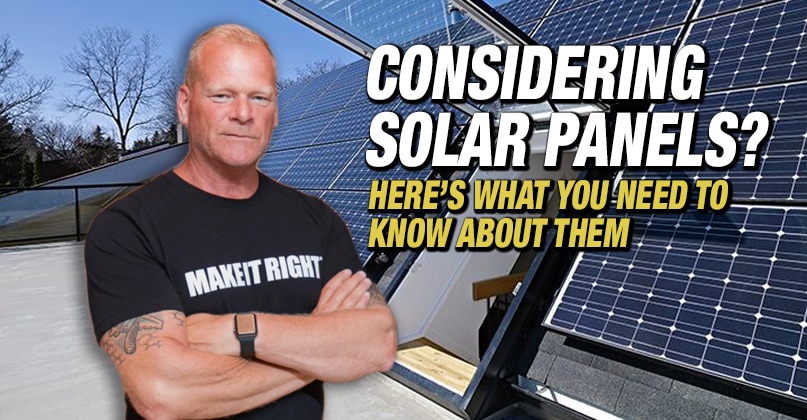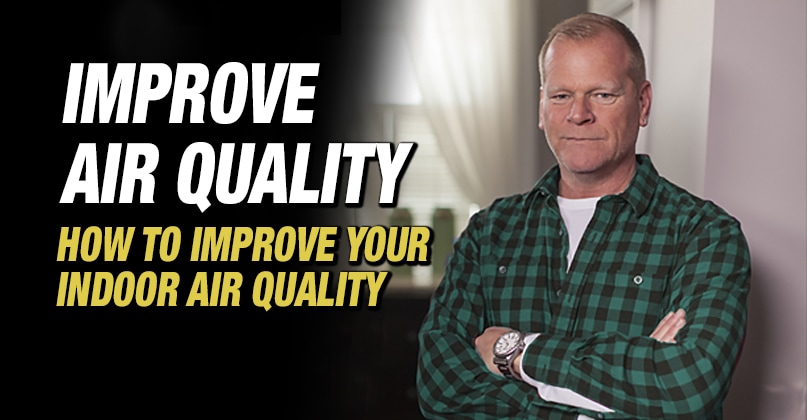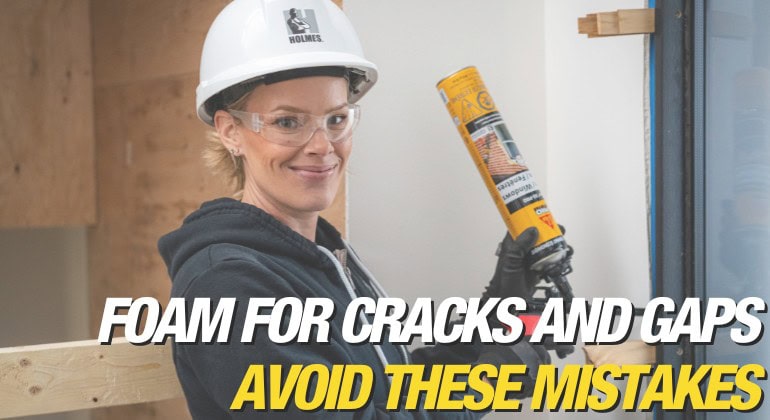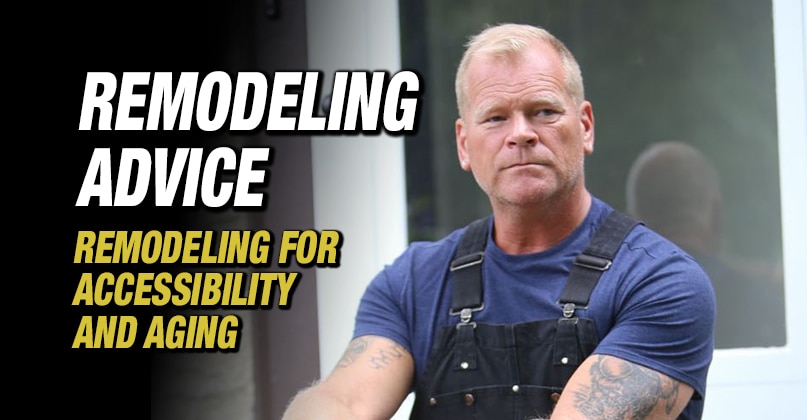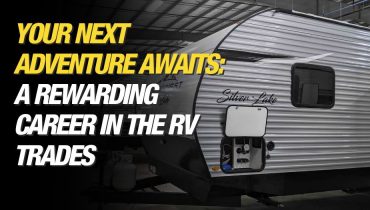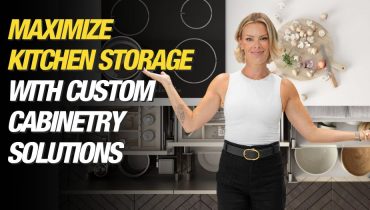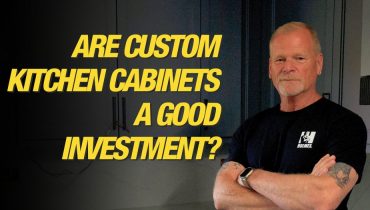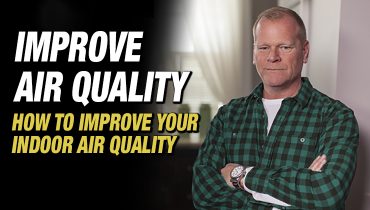Dream of a career where your skills bring joy, enable freedom, and create unforgettable memories? The thriving recreational vehicle (RV) industry offers just that! It’s more than fixing vehicles; it’s...
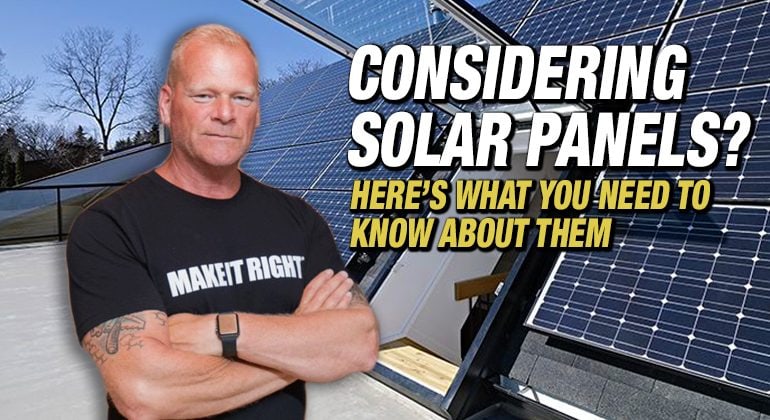
Considering Solar Panels? Here’s What You Need To Know.
By Mike Holmes
Mike’s Advice / Home Safety & Maintenance
Thursday, May 21st, 2020 @ 11:26am
Solar energy isn’t just the way of the future, I truly believe it’s what we as homeowners should all be striving for today. Not only is harnessing renewable resources to power our homes a smart way to combat rising energy costs – it also removes our reliance on non-renewable resources. But do solar panels actually save you money in the long run?
Paired with a well sealed, energy efficient home, solar panels can harness more energy than you need to power your home. Look into buyback programs offered through your municipality as well as federal tax credits. I love when governments reward homeowners for making better choices for their homes, including new windows, energy efficient appliances and improving your building envelope.
I’m always going to argue in favour of solar energy (and harnessing wind and water power), but the fact is, you have to do it right.
Do Solar Panels on your roof save you money?
Solar energy is free and unlimited. It can be harnessed right on the site where you use it—the roof of your home. It’s converted and even stored on location. The only real drawback is the initial cost of investment.
Solar panels do have a big upfront cost, but will absolutely pay off in the long run. I understand that it’s not realistic for everyone to be able to make the switch today – as more of us start to adopt the technology, we should see solar panels become more affordable technology for every day homeowners.
You might not have to shoulder the financial load all alone. Look into rebates and programs offered by your province – you never know where it might pay to make upgrades.
Like I said, I believe solar is something we all need to work towards. Let’s make it right for the next generation.
Solar Panel Installation and Your Roof’s Orientation
Now, you don’t need to meet every requirement here, but it’s important to know that you’ll get good value out of your solar panels. The best home for solar panel installation is a south-facing, sloped roof, at a 45 degree pitch, usually with asphalt or metal as the roof material.
While you don’t need to have this exact roof to be a perfect candidate for solar, it could affect the efficiency of your panels. Your roof’s orientation has a major role to play.
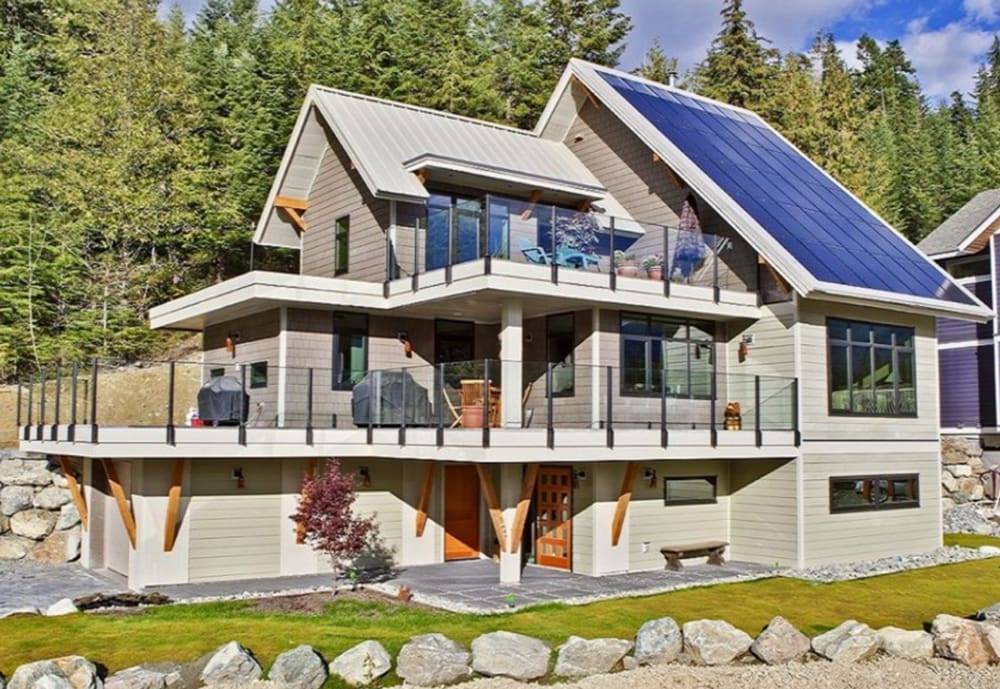
An east or west facing roof will produce upwards of 30% less solar power than a south facing roof. In a climate that doesn’t get a lot of sun, it could make all the difference. Photo from RDC Fine Homes.
The Type of Roof Required
I prefer a metal roof for a lot of reasons, but it’s the best choice for solar paneling because it’s so long-lasting. With a metal roof, you’re looking at a lifespan of 50 years. Most solar panels are built to last for about 30 (though some will last longer than that), meaning that in most cases you’re not going to have to redo your roof during your time with the solar panels. This keeps you from having to remove components of the panelling to run new roofing.
RELATED
Check out the installation of my metal roof from my Ultimate Garage build.
Even if solar panels aren’t in the budget today, make smarter choices that will allow you to add them in the future. Replace the roof before you add the panels, and work with a licensed installer to troubleshoot any potential issues. Obstructions like plumbing stacks or chimneys can get in the way, taking up space you need for the panels
Of course, your roof needs to be free of obstructions for the solar panels to actually work. If your roof is obscured and shaded by some big trees, or neighboring buildings, you might have to look at a creative solution.
RELATED
Are solar panels for new builds only?
When we rebuilt my garage (Mike’s Ultimate Garage), we added solar panels, but most solar projects are retrofitted to existing structures, so don’t think that solar panels are for new builds only.
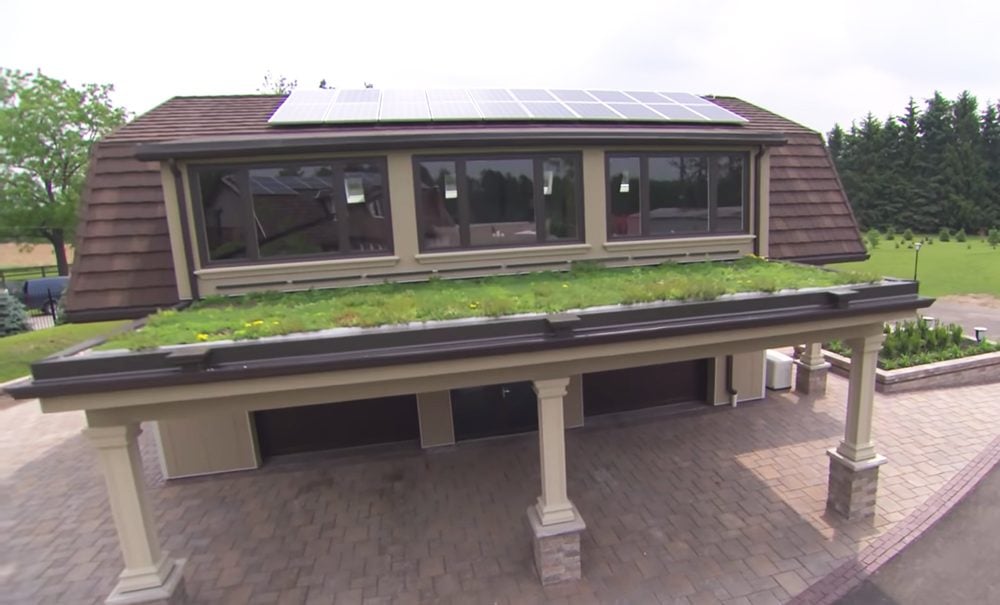
We added 40 panels to my garage and when the sun hits them, they generate direct current energy.
This flows into an inverter, which converts the power from direct current to alternating current and feed into controllers that direct the energy where to go. The controllers talk with the solar panel system on the roof, the solar batteries, and my generator.
During the day when the sun is shining, the solar power directs right into my electrical panel, while also charging the battery bank. When there’s no sun, my garage relies on its stored battery power – and if that gets too low, the generator kicks in to feed my electrical panel. Your needs may not require a generator, better technology is always coming out and some of the batteries on the market are much more powerful than the one I installed a few years ago.
The two common solar technologies to choose from are photovoltaic, which uses arrays of cells to turn sunlight into electricity, and thermal, which uses sunlight to heat water or air for use inside.
No matter the project, I always try to go for green options and renewable energy solutions. I could be working on a house for the new series, a custom home, a hurricane resistant house in New Orleans, a children’s village in Haiti or a First Nations reserve. I always try to incorporate green solutions that make sense. Not just for short-term maintenance but also for long-term sustainability. And solar leasing is a good way to start weaning our homes off non-renewable energy.
READ NEXT:
If solar panels aren’t in your budget today, there are some other things to consider to make your home energy efficient. You can switch to LEDs, install a programmable thermostat and embrace smart home technology. Read about energy efficient upgrades for your home here.
